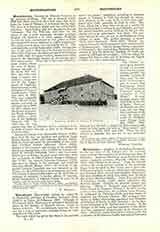

Montemayor (MONTEMOR), JORGE DE, writer, b. at Montemor, province of Coimbra, Portugal, about 1520; d. at Turin, February 26, 1561. Although of Portuguese birth, Montemayor occupies a prominent place in the history of Spanish letters. Little is known of his life. We are informed, however, that he was not a man of university training, being not even acquainted with Latin.
The work which has given him fame is his pastoral novel “La Diana”, published, according to common report, at Valencia, in 1542, but thought by others, from allusions in the work itself, to have been published after 1554, probably in 1558 or 1559. This book, which for a long time served as a model for novels of its kind, is written in good Spanish, and in it the author describes certain incidents in his own life, among others an unfortunate love affair. The portions written in verse are not as meritorious as those written in prose. The author promises a sequel which never appeared. Three other “Dianas” appeared, however, which purported to be continuations of Montemayor’s. One by Alonzo Perez, a physician of Salamanca, who claimed that Montemayor had entrusted to him his plans for finishing the work, appeared in 1564 and was a failure. The two others, by Gaspar Gil Polo in 1564 and by Jeronimo de Tajada in 1627, were more deserving, of praise.
The “Diana” enjoyed great popularity and led to many imitations by famous authors, notably “La Arcadia” of Lope de Vega, and “La Galatea” of Cervantes, and it is said that Shakespeare based his “Two Gentlemen of Verona” upon an episode in “La Diana”. It went through many editions both in and out of Spain. There are six French, two German, and one English translation of the book, the latter the work of Bartholomew Young (London, 1598). Montemayor has also left a number of lyric poems, published in 1554 under the title of “Cancionero”, and reprinted in 1562, 1572, and 1588. These are also written in Spanish, but are not of any particular merit.
VENTURA FUENTES

